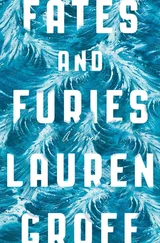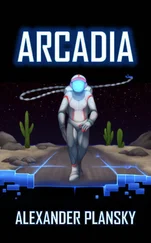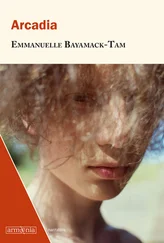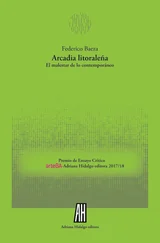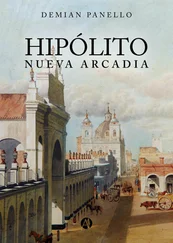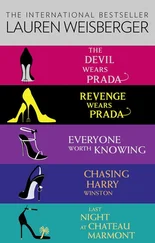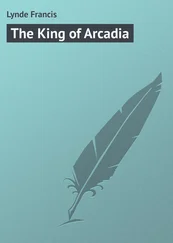Take me home, she said into his neck. So he took her, darting out into the night, before the Fox brothers even parked, before they entered the gallery and saw their own handsome adult Outside faces juxtaposed with their achingly tender and open Arcadia faces, shelled and unshelled, among the dozens of portraits of Arcadia that Bit had hung that night. What they found most moving, they told him later, were the blanks between the frames, the leaps that happened invisibly between the then and the now .
A brutal November morning, and Bit is walking through protesters in Union Square. Cold enough to make your balls vanish, he thinks, and remembers his hungry year in France after college, panting for the crumbs of insight strewn by the great photographer he’d traveled half the world to be near. Bit was willing to do anything: sweep the atelier, make excuses to the photographer’s wife when the photographer was with his mistress, print the contact sheets, do the enlargements alone. He was freezing and starving, wretchedly poor. He saw himself in the shop windows and was surprised at the small skinny urchin he looked like, something out of Hugo, a Gavroche nightly nibbled by the rats in the belly of the steel elephant. He was in the market searching for bruised fruit to bargain down to centimes when one old woman, peasant-fat, with buckteeth, beckoned him over. Mon pauvre, she said, eyes full of love. She was someone’s mother. She made a basket out of Bit’s hands and filled them with gorgeous purple figs, a delicate vegetable frost on them. Couilles du pape, she said with a wink, and he grins now, remembering. Pope’s balls: tiny, cold, purple.
He is still smiling at the thought, he knows, because the protesters smile back when they see him. Their faces are painted in white, and they are wearing white robes. He takes a picture, then ten. He looks over one of their leaflets, printed on paper the color of a rosy cheek. They are protesting Guantánamo, that limbo of terrorists. They protest the torture, the lack of due process. Well and good; he is on their side.
But his eye falls on a phrase that sends a white bolt through him. Ghost detainee: a person taken into detention anonymously so their families don’t know what has happened.
For a moment, the winged thing in him is relief. This is where Helle went, he thinks wildly; a mix-up, Helle saying something foolish in public as she always does at parties; Jesus, if I had a terminal disease, I’d strap a bomb to me and get rid of the Dick and the Bush in one blow. Or, looking at a television where women weep and ululate by a destroyed market: Fuck, what are we doing to that poor fucking country, no wonder they want to murder us all. Someone told on Helle, he thinks, a file was opened. He sees her go out of the apartment for a walk, sees a van pull up, a burlap sack on the head, a swallowing; she in an orange jumpsuit at a stainless-steel table, the Feds not knowing how harmless she is, how damaged, how deeply Grete needs her.
Bit lets the flyer drop into a rubbish bin. He is staggered; he has to sit. For a moment he felt relief at the idea of Helle being an enemy of the state, that she hadn’t been abducted, sold into slavery, raped, murdered; that she hadn’t fallen off the wagon and passed out in some ugly motel room, the needle in her vein under the rubber thong. Worse than those awful possibilities is the thought that she walked away in health and sanity. And what hurts him most is the gleam of peace he’d had: he would rather imagine his wife tortured in a secret cell than imagine that she chose to not love them anymore.
At morning drop-off, Bit stands watching Grete until long after all the other parents are gone. The aide has a face as lucid as a dormer window under the brown eaves of her hair, and she takes his elbow and deposits him gently into the hall. He blinks. There are the distant voices of children, the smell of their warm bodies, the sun in its pour over the honey-colored hallway, but something cold grips the back of his neck and refuses to let him move.
Look, he commands himself. Look hard. There is a piece of paper in the middle of the floor. He looks until it becomes terrifyingly strange. The branched folds across the surface, the incisor dents on one corner, the way the paper holds pores like skin, the feathery scrawl of pencil drawn across it, the way the corner shifts ever so gently in some tiny invisible wind, rocking and rocking into its own small shadow beneath, how the light from the windows condenses in the white until the paper holds a power beyond that of any other object, merely because it has been seen.
He remembers the lists of beautiful things that he used to make when he was little, and how he would say the litany quietly to his mother to try to pry her from her sad bed. He gathers a list again: this slice of late afternoon light across the subway tiles on the wall, the tree outside full of plastic bags white-bellied in the wind, Grete’s tiny spoon in her hand this morning, the gerbil smell of Grete’s breath, Grete running away from him at the playground, becoming a peapod, a spot, a dot. Again and again, all good things circle back to his breathtaking Grete. She breaks the spell. He can move again.
Hannah flies up for the week of Thanksgiving. Abe is coming also, Titus having agreed to drive him down on the morning of the feast. Abe is a secret. Bit hasn’t told his mother yet. He doesn’t think he’ll have the courage to do so until the doorbell rings.
In the airport, as she comes into baggage claim, Hannah’s face seems old and worn. Her hair has gone a heathered gray, the one long braid of it snaking around her upper arm. Her duffel is heavy. She studies the ground. Her lips are moving almost angrily, and Bit can’t believe his mother is the kind of woman who, in her loneliness, would begin talking to herself. He imagines a slippery slope; a roil of cats, a trashcan full of bottles, Hannah as bag lady. He scans behind her for Abe without thinking. He hasn’t seen his parents apart since he was little.
Then Grete bounces and shouts, and Hannah looks up, and when she sees Grete, her face is young again, and she is the great golden Hannah, dropping to her knee to hug her granddaughter. The part in her hair has the same warm sourdough smell when he kisses it. His head swims; he feels awakened.
They have a luxury of time together, almost too much. Grete clings to her Grannah, squeezes her, leads her from toy to toy and store to store, plants long slow kisses on her mouth. They are so absorbed in one another that Bit feels a flush of jealousy and laughs at himself: which one is he jealous of? Whose attention does he miss most?
At the old-fashioned ice cream parlor, as Hannah and Grete whisper and feed spoonfuls of frosty sugar to one another, he has an idea. Hannah, he says, and she looks up, her face rosy. Would you mind watching Grete all day tomorrow? I’m thinking I want to take the train to Philadelphia.
She fumbles in her purse and hands Grete two worn dollar bills. Monkey, she says, your Grannah desperately needs a chocolate chip cookie. Grete skips off: ordering at counters is her favorite thing to do.
Hannah looks at Bit. You’re going to see Ilya? she says.
What? he says. You think it’s a bad idea.
It’s just. What are you hoping to find?
Maybe she went to him, he says. Maybe she chose him. It’d be bad, but not as bad as not knowing.
You didn’t call him when she first vanished? You don’t think the detective would have dug her up, if she were there? She reaches her hands toward his, and he is shocked at the feel of them; bird-boned, tissue-skinned.
I did call him. I don’t know about the detective. But I didn’t go look, myself.
Hannah blows a graying wisp from her eyes and says, What, you think Ilya lied?
Читать дальше
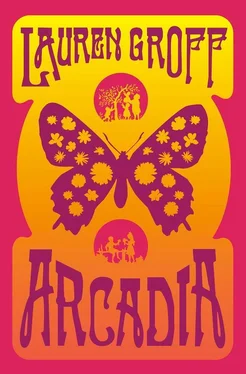
![Andrea Höst - In Arcadia [Touchstone - Extras]](/books/56405/andrea-host-in-arcadia-touchstone-extras-thumb.webp)

